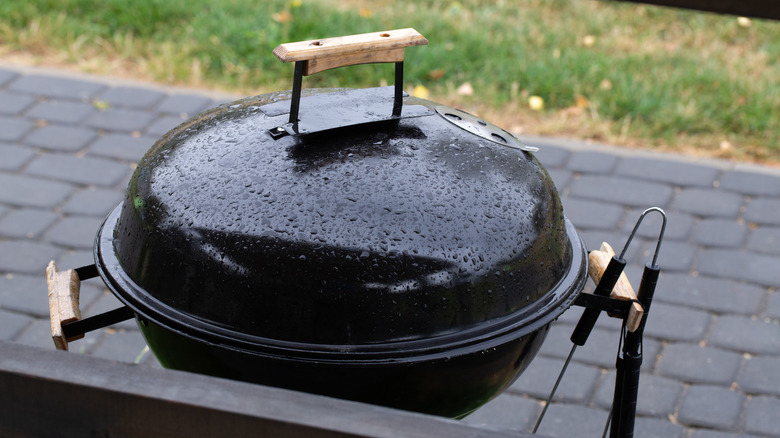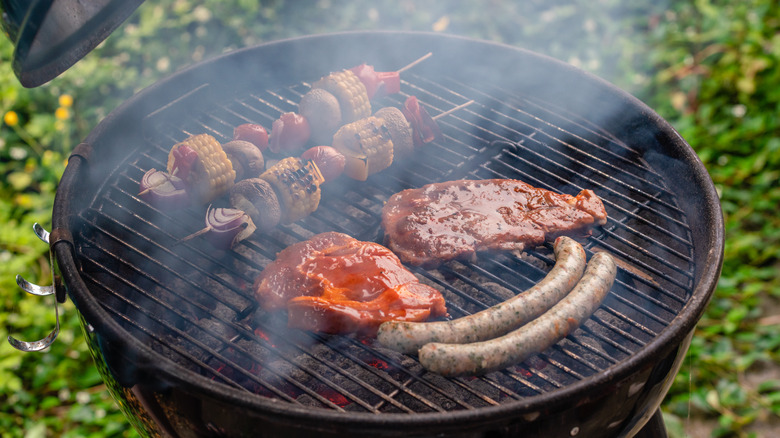The Key To Grilling In The Rain Is All In Pumping Up The Heat
Grilling is the ideal summer activity. The sun is out, the weather's warm, and you have the best cuts of steak ready to thrown on the grill. That is, until that dreaded drop of water hits your skin and you're suddenly standing in the rain. But your plans don't have to come to a halt just yet. If you're cooking on an electric grill, then it's dangerous to cook in the rain, but for gas or charcoal grills, a little wet weather shouldn't pose a problem. By turning up the heat, you can keep the grill going. Your main focus should be maintaining high temperatures on your grill since rain tends to cool the air around it, which will lower the temperature of your grill. So by all means, add more fuel to your fire by piling on the charcoal and turning up the gas.
If charcoal is your fuel source, it's best to leave the fire to work itself up for a while before commencing with grilling. Remember that charcoal is excellent at absorbing moisture — a reason we recommend you keep a few pieces of it in your fridge. Let the fire build up substantially and reach the appropriate temperatures for you to throw on your meat. Also, keep the lid on your charcoal grill and limit how often you remove it. This more evenly cooks your food, keeps it dry, and gives it a desirable smoky flavor. Opening the lid lowers the temperature and stalls your grilling.
Get a grill lid, a grate, and thin cuts on your plate
Besides turning up the temperature on your grill, there are some other tips to keep in mind if you want to successfully grill in the rain. Your grill lid, for instance, is of the utmost importance, keeping your grill hot and stopping rain from cooling your pit. But make sure to open your lid a little and let in some air occasionally, especially at the beginning of your grilling when lighting the charcoal. Fire needs oxygen to thrive, so your best bet is to hold the lid atop the grill to get the fire going. This way, you keep the grill dry while letting your fire get started. Then replace the lid and leave the temperature to rise.
Cheap grill grates are made of steel, but if you're cooking with high heat in cold or rainy weather, you'll want to replace your grill's standard grate with cast iron. Cast iron grates retain heat better than standard grate materials, maintaining the high temperatures more effectively.
If replacing your grills isn't feasible, you can always slice your steaks thinner — if that is your choice of food on the grill. Thin steaks tend to cook quicker, but you'll have to keep an eye on them so they don't overcook. If you use a remote wireless meat thermometer, then you can check your meat's temperature without leaving the house or opening the lid numerous times, all while avoiding overcooking your steak.

